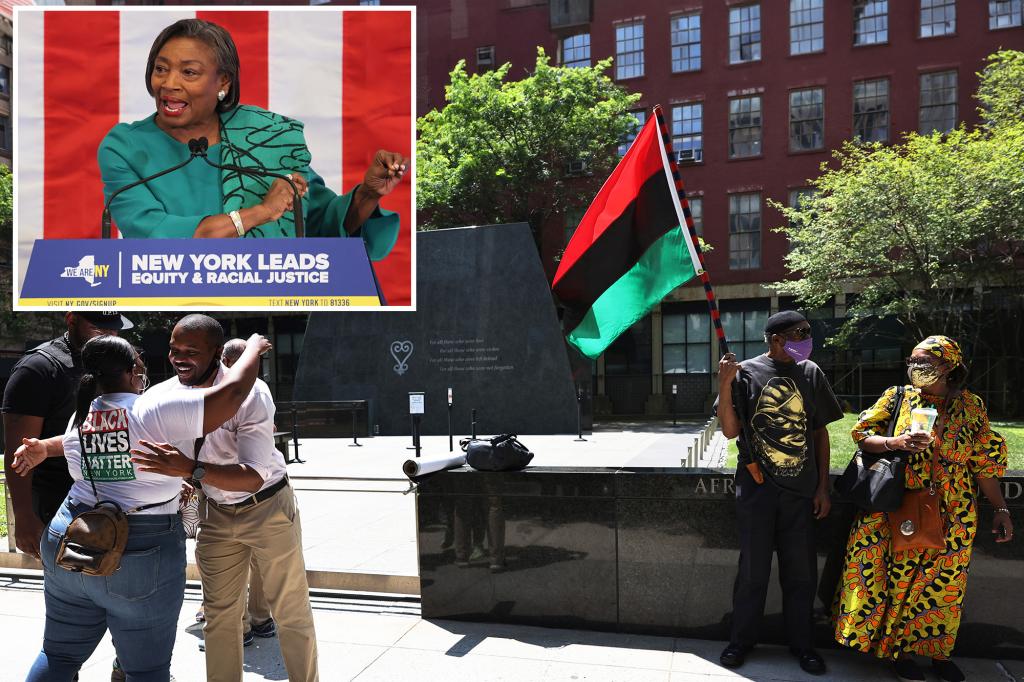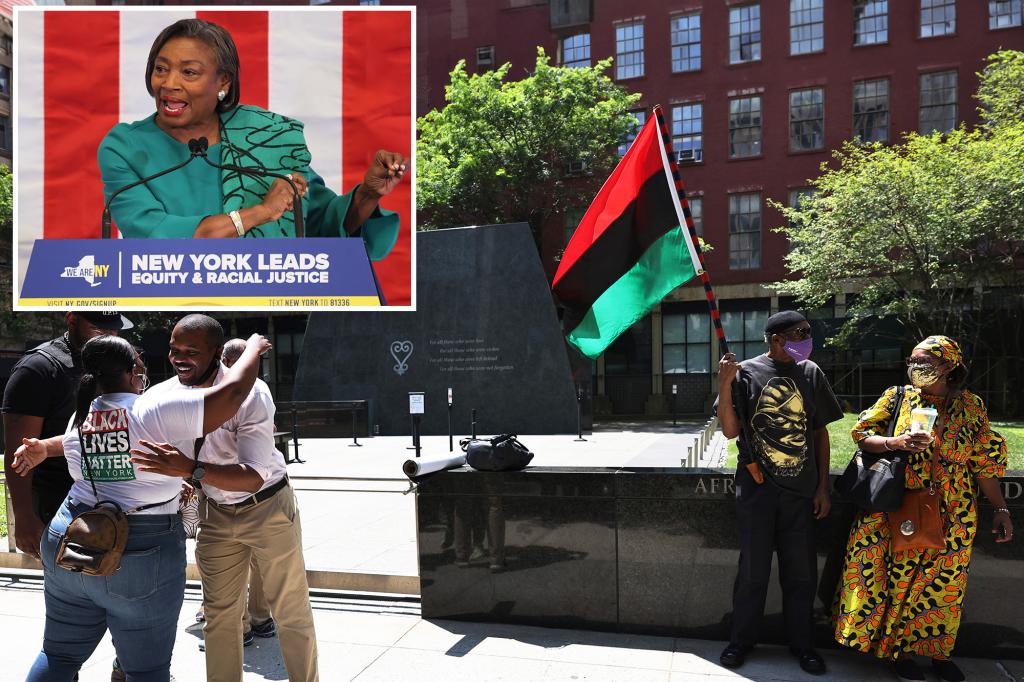
A New York commission that will recommend whether to give reparations for slavery and discrimination to black residents hasn’t even met yet — but it’s already sparked a rift among black New Yorkers over who should be eligible for payouts.
A similar panel in California said monetary reparations should be limited only to descendants of chattel enslaved persons to the US — $360,000 per eligible person — but not for other black Americans who may have suffered from discrimination.
Even with that restriction, the pricetag for the proposal has been estimated at an eyewatering $800 billion.
A New York commission is now examining whether the descendants of slaves are entitled to reparations. Getty Images
However, a huge segment of New York’s black residents are not descendants of US slavery. In New York City alone, well over 500,000 people are Afro-Caribbean or African immigrants — more than 25% of the black population, census figures show.
But some New York black activists said California’s reparations package was too restrictive.
Bertha Lewis, head of the Brooklyn-based Black Institute, told The Post that reparations must be considered for all black residents, because they have suffered from decades of systemic racism resulting from slavery — even if they are not direct descendants of slaves.
“That’s a false narrative,” Lewis said. “I don’t give a f**k what California did.”
“You can’t just say, `only descendants of slaves from the South.’ Black people faced the effects of slavery — discrimination — simply because they’re black.”
She said in many cases it will be extremely hard to document proof of ties to slavery given the scant records at the time.
A rift has grown over whether all black New Yorkers should receive a check.
“If you’re going to talk about reparations, you have to talk about discrimination that has gone on a long time against black people in the white American system,” Lewis said.
But others disagreed, saying any black people who moved to the US for better opportunities have no right to reparations for slavery in this country.
“It was our choice to come here,” said Mona Davids, a black South African who moved to New York as a child.
“The only beneficiaries of reparations should be descendants of chattel slavery — not African immigrants or Afro-Caribbean descendants.”
She added: “Descendants of slaves didn’t have a choice. White people benefited from slavery.”
Davids, who publishes “LittleAfrica News”, which serves that African community in the US, said reparations advocates should also go after the African countries, where rulers rounded and sold people to slave traders.
“In many cases it was black Africans who sold slaves. Ghana is rich. Nigeria is rich,” she said.
Gov. Kathy Hochul and legislative leaders recently appointed nine members to the Community Commission on Reparations Remedies. Hochul won a close election for governor in 2022, thanks to overwhelming support from black voters.
The commission, formed through a law approved in December 2023, is tasked with examining the horrific legacy of slavery, subsequent discrimination against black people and the impact it has to this day.
Assemblywoman Michaelle Solages, a sponsor of the law to study reparations, said public hearings will be held across the state to get input from New Yorkers as well as experts on the issue.
Solages said it’s up to the commission to recommend who should be eligible for reparations, but she believes the California model is not one New York should emulate.
“We have a different history than California. We’re looking at harm-based reparations. New York is not just looking at slavery but the vestiges of slavery,” she said.
New York state records counted 21,193 enslaved people in the 1790 population. Slavery wasn’t outlawed in New York until 1817 — and some 4,600 enslaved people were freed when the law took full effect 10 years later, according to the New York Historical Society.
The full article:

Black New Yorkers already clashing over who should get reparations as state panel starts
A similar commission in California recommended payouts only to direct descendants of people enslaved in the US — at a cost of $800 billion.